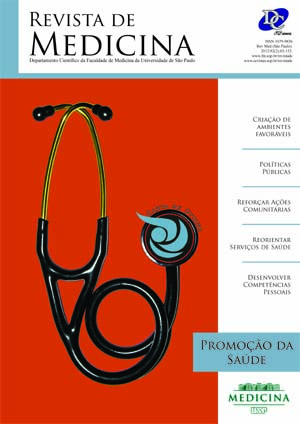Developing competency - based accreditation for health promotion in Europe
DOI:
https://doi.org/10.11606/issn.1679-9836.v92i2p87-96Palavras-chave:
Health promotion, Health education, Europe.Resumo
Background: In April 2013, the inaugural meeting of the Board and Committees of the IUHPE European Health Promotion Accreditation System was held in Paris. The meeting heralded the implementation of an innovative competency-based accreditation system for health promotion in Europe. The System aims to promote quality assurance and competence in health promotion through a Europe-wide accreditation system which is designed to be flexible and sensitive to different contexts while maintaining robust and validated criteria. The System builds on the international literature on competency-based approaches to health promotion and on global capacity development initiatives such as the Galway Consensus Conference Statement ‘Toward Domains of Core Competency for Building Global Capacity in Health Promotion’1. The System is designed to provide validated mechanisms for assuring quality in health promotion practice, education and training and a foundation for capacity development in Europe based on shared concepts and a formalised system of professional recognition. The competencies and professional standards that underpin the System are premised on the core concepts and principles of health promotion as defined in the Ottawa Charter for Health Promotion2 and successive World Health Organisation charters and declarations3-8. The System is currently undergoing intensive piloting and will be fully operational in 2014. Methods: The System builds on a competency-based accreditation framework developed as part of the CompHP Project. The CompHP Project development processes employed a phased, multiple-method approach to facilitate consensus-building with key stakeholders in health promotion across Europe. The piloting process for the System includes establishing and testing the governance structures, application processes, reporting policies and procedures to ensure that they are equitable, feasible, open and transparent. The eligibility criteria and online application system will be thoroughly tested by processing the first round of applicants from health promotion practice and education and training in autumn 2013. Findings: The governance structures and operating procedures for the System have been established building on the frameworks developed by the CompHP Project. The findings of the CompHP Project showed support for the development of a pan-European accreditation system and this has been translated into action with the establishment of the Board and Committees of the IUHPE European Health Promotion Accreditation System. Conclusions: The IUHPE European Health Promotion Accreditation System comprises a devolved model within which National Accreditation Organisations interact with a European Accreditation Organisation to ensure quality in health promotion practice, edcuation and training in Europe. While the focus of the System is currently on the European context, there is evidence that it, and the competency frameworks which underpin it, will be useful resources for capacity building for health promotion globally.Downloads
Os dados de download ainda não estão disponíveis.
Downloads
Publicado
2013-06-30
Edição
Seção
Artigos
Como Citar
Battel-Kirk, B., & Barry, M. M. (2013). Developing competency - based accreditation for health promotion in Europe. Revista De Medicina, 92(2), 87-96. https://doi.org/10.11606/issn.1679-9836.v92i2p87-96




